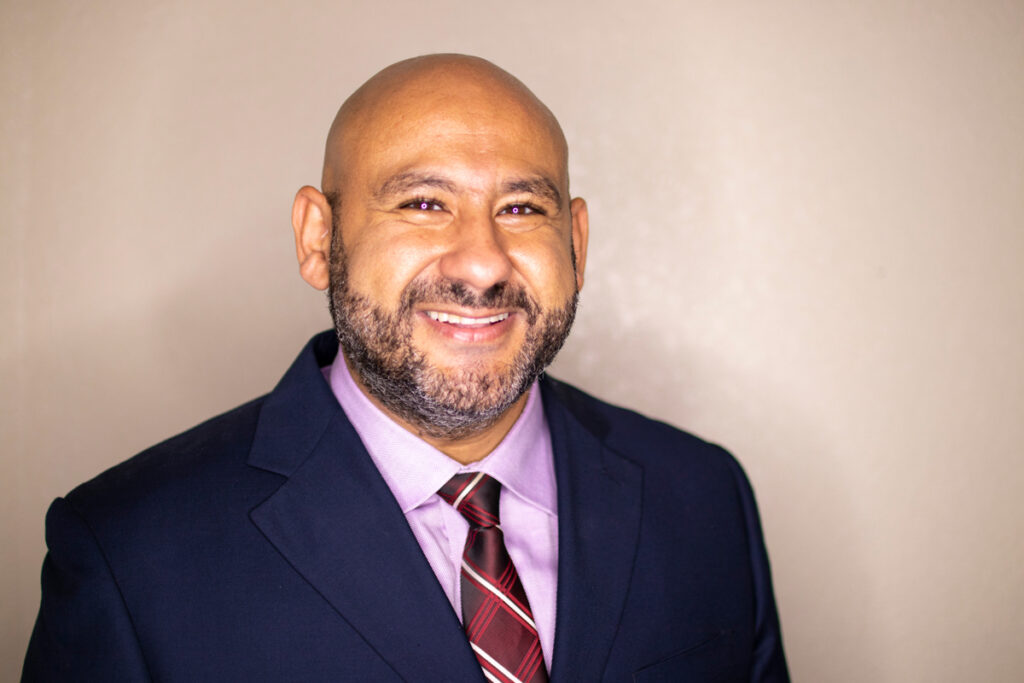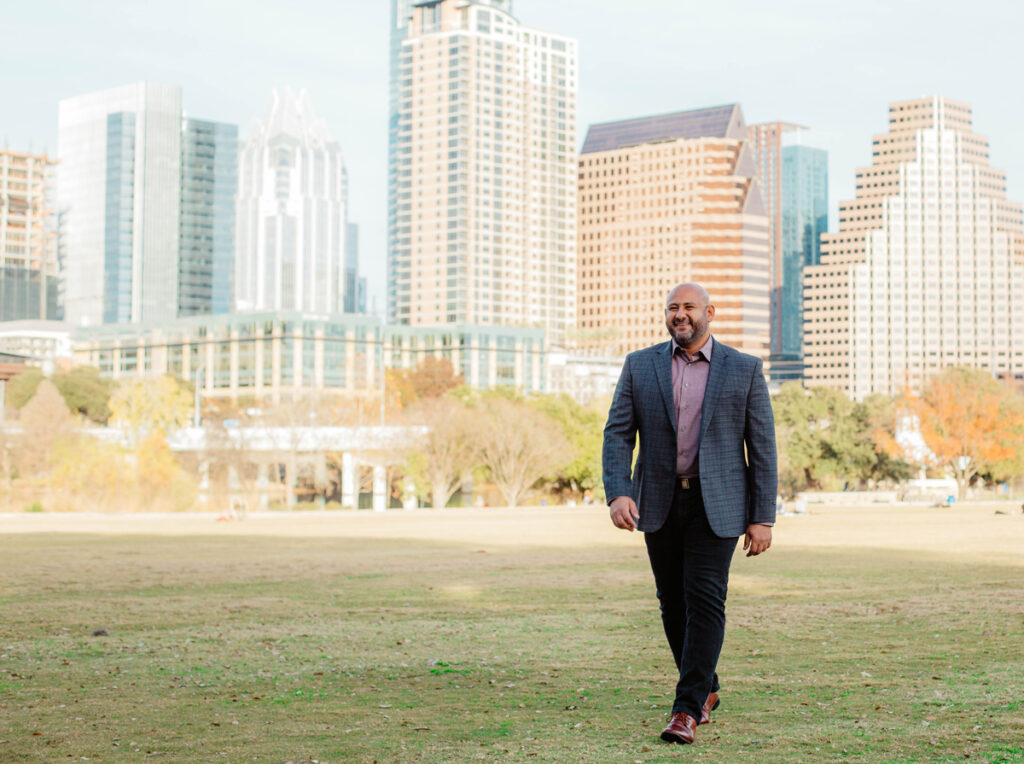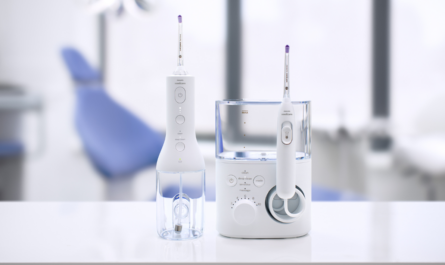With the right mindset, and skillsets, dental group practices can create a high quality of service for their clients amid a challenging environment.
The initial career path for Tarek Aly wasn’t negotiable. His parents wanted him to become a doctor just like them and his brother, so that’s what he did. And while he enjoyed practicing dentistry, Aly had a stronger leaning.
“I’ve always had business in the back of my mind,” he said.
Through dentistry, Aly has been able to fuse the two into a successful career both as a periodontist, and now as the chief operating officer at OrthoDent, a dental support organization built for dentists, by dentists.
In the following interview, Efficiency in Group Practice discussed a wide array of topics with Aly, including the challenge of balancing clinical expertise with developing business skills, how COVID-19 has affected dental group practices, and what adjustments he believes group practices need to make in order to maintain success in the future.
Efficiency in Group Practice: You practiced dentistry and periodontal surgery, and then got into management and marketing. Can you talk about what interested you with the business side of dentistry?
Tarek Aly: I’ve wanted to be a businessman since I was young. But being from a family of doctors, and also being Egyptian – if you know anything about Egyptian parents, you don’t negotiate with them – they wanted me to become a doctor just like them and my brother. I was intrigued by medicine in general, but my passion has always been business. So, I did join dentistry for my parents, and I ended up falling in love with it. However, I didn’t see it as my dream career.
I’ve always had business in the back of my mind. After my periodontal residency, I went on to receive an MBA, a marketing diploma, CVA, and many other business certificates. I loved that marriage between the clinical and the business aspect of dentistry.
As a dentist, by the time we graduate from dental school, we have a decent amount of clinical skills, but very little amount, if zero, of business skills. This includes accounting, finance, marketing, procurement, business analytics, compliance, strategic development, etc. So, we either learn these skills on the job as we go – which takes years – or we go get formal business education, which I chose to do. If you’re going to start a business, which is basically your clinical practice, you must master these skills, on top of soft skills that we have to master, like communication skills, persuasion skills, conflict management skills, etc.
EGP: As you were practicing clinically, you were also building expertise with the business side of a clinic. What were the challenges that came up that you saw that you and your colleagues would face?
Tarek Aly: When you are practicing dentistry, you are completely focused on the tactical aspects of dentistry. You are providing the ultimate quality of clinical care for your patients. However, you don’t dedicate enough time and attention to the business aspect, which is also serving patients, by making sure that you provide top quality of care, you have less waiting time, you’re efficient and effective, you have happy, satisfied team members, and returning patients with a positive impact. That in itself is difficult because you are functioning with two minds. You have the dentist’s mind, and you have the business mind. And that is definitely hard. In the beginning you are handling everything. You’re doing all these things. But as you grow, you have the ability to break down some of these functions and give them to a specialist, who has the formal education, knowledge and the experience to tackle one piece at a time. It is definitely challenging, but, as you scale, it becomes easier.
EGP: What about marketing? That seems like a different gear than other business functions such as management or accounting. What intrigued you about marketing?
Tarek Aly: Marketing is in all aspects of our lives. It’s communication skills. It’s how we present ourselves. How we present our practices. How we train our teams. Our message. Our quality control. Marketing is everything.
Before you start a practice, whether to build one, or buy one, you must do market analysis. This includes geographic, demographic, and psychographic analysis. Including your competition analysis, consumer behavior analysis, and product analysis. What services are you providing? What’s your USP, your Unique Selling Proposition analysis? What is special about my service, or product, or what I’m delivering? What is my competitive advantage, so to speak?
Then we have the advertising part of marketing. What is the message that I’m trying to convey to the public? What is the vehicle that I’m going to use for this message? Am I going to use billboards, radio, TV, social media, or Search Engine Optimization? Who is the sender? Who am I and what am I trying to achieve here? What is my unique selling proposition? And who is the receiver, the target audience? How do I learn more about the receiver, the consumer behavior, what drives them to do the things they do? And how do I provide the best quality of care that they deserve, and I care about?
EGP: Can you talk about the origins of OrthoDent; how it started, your involvement, why you saw there was a need in the marketplace for it?
Tarek Aly: We were started in 2012 by Dr. Kyle Raymond, our partner, who was the founder and he saw a need in underserved communities in Texas, which is a big state. So, he assembled a team, and I was one of the team members. We partnered and decided to focus our attention on providing quality care in an affordable fashion of pediatric dentistry and orthodontics to the underserved communities. The partners are Dr. Kyle Raymond, Dr. Nieku Manshadi, Dr. Dustin Roden-Johnson, and me. We provide mainly pediatric dentistry and orthodontics.
EGP: What are some of the keys to the business model?
Tarek Aly: Number one is providing the best pediatric dentistry and orthodontics care under one roof, which keeps high efficiency and effectiveness. We also support dentists and specialists by providing them with the resources they need in order to provide the excellent quality of care the patients deserve. It’s the pediatric dentistry and orthodontic model, coupled by the services support including marketing, IT, business intelligence, analytics, procurement, compliance, strategic development, revenue cycle management, accounting/finance, and so forth. This enables the dentist to completely focus on the quality of care while the business part is taken care of, in an environment where it is friendly, encompassing, and high quality.
EGP: A worry that some independent clinicians have in joining a DSO is losing a sense of identity. How is OrthoDent able to help those practices maintain their sense of identity within their community?
Tarek Aly: OrthoDent mainly supports the back-end services, the services that patients can’t see, so the clinicians can maintain their own individuality, identity, and maintain their own brands. Every location has its local feel and a local name. The team members are local. The dentist mainly is, in most cases, local or lives in the area. And it does not lose that local feel. At the same time, they are supported by the back-end services, so they maintain this microculture within the culture.
EGP: This year has obviously been a disruptor in a lot of ways. How have you observed COVID-19 affecting dental practices?
Tarek Aly: COVID has greatly impacted the industry in general. There have been pros and cons with COVID. I feel that there are more pros than cons, in some aspects of our business, or the dental industry in general. We’ve definitely incurred some suffering from the mandatory closure and the extra precautions we now have to implement. However, this motivated us to build better systems and operations to fit the new model, and work as effectively and efficiently so that we can deliver that quality of care, but also meet that operational capacity.
As you know, COVID has taught us, on the personal and the professional level, that you can sustain a high quality of service, or high quality of life, with much less than what we had before. This has translated into our business as well. We’re now lean, we have better systems and processes, we’re faster now, and the team members are more aligned. When there’s a pandemic or a major impact to communities, people tend to come together and have the common goal of “Let’s defeat this. We’re in this together.”
EGP: What was demand like for reopening?
Tarek Aly: It was great. It was more than what we expected, which proves, time and time again, that dentistry is an essential service. You can’t really just shut down dentistry with few implications. There are a ton of cases that otherwise would go to the hospital and have a negative impact on the hospital capacity. As a result we have received, after the lockdown, a massive influx of patients wanting to come in.
EGP: What are Key Performance Indicators (KPIs) for dental group practices like now? Have they changed amid the pandemic?
Tarek Aly: The KPIs we track are different now. The ranges we consider normal are different. Some leading and lagging indicators are different. It has been an adjustment.
The reason we track KPIs is to monitor the health of the business, or specific processes. And since the processes have changed, and some outcomes have changed, we had to maneuver and be more sensitive to some KPIs we didn’t track. And some of the KPIs we did track, didn’t get as much attention as before.
EGP: What’s an example or two of an essential KPI in our new environment?
Tarek Aly: KPIs, like patient waiting time, used to not be on the top list because we just never had an issue with patients waiting. Our systems were so efficient. But now since you have a limited number of patients, you must be very sensitive to patient waiting time.
Staff efficiency metrics have been developed to monitor efficiency.
Compliance and safety metrics have a much higher place in the top 10 now. Apart from making sure that the team is safe, and the patients are safe, which have always been a top priority, we need to be in compliance with all regulatory bodies in the industry.
EGP: Long-term, what are some other ways that you see dental group practices changing?
Tarek Aly: I see that dental groups will be running leaner and will be focusing on learning and development. I see dental groups having tighter systems and processes and see them working together collaboratively. I have seen an increase in camaraderie happen because of COVID. A lot of us got together. Big or small, east, west, central, south, we all got together. There was this sense of “Hey, we’re in this battle together.” I see more handholding with dental groups in the future.
EGP: What about the DSO model within the dental industry? Do you think COVID has been an accelerator of that trend?
Tarek Aly: Dentists now realize that you really do have to work together and hold hands. Specialization is everything. If you have a need for a dermatologist, you’ll go to a dermatologist, because this particular person is very specialized. And that’s what they have done for years of their life, only dermatology.
It’s the same concept with almost all business aspects. There are marketing specialists that do only marketing. The same with accounting professionals, and other departments. Dentists that are business owners and clinical operators at the same time, may now have more inclination to collaborate with other business specialists and professionals. In a post-COVID world, they will be thinking “I can hold hands with professionals that can take me to the next level.” I see a lot of that happening in the near future.
EGP: You have a real passion for providing education and insights for the industry to improve business functions within a dental group practice. What are some things that you’re doing now, in our changing environment, to maintain that platform?
Tarek Aly: Right now, we are working on a few great projects, and we’re creating some courses to help with these projects.
KPIs and business analytics are definitely passions of mine. They’re like the X-rays you need to see before you treat the tooth. You must look inside your businesses like you look at the X-rays pre-treatment. How can you drive a car without looking at your gauges? How can you fly a plane without looking at your gauges? Yet, most dentists run their dental practices without looking at the gauges, which absolutely needs to change in the industry. I’m also trying to spread awareness of checklists and creating proper systems and processes within the industry. I’m a big fan of letting the process lead you to the outcome you deserve, minimizing the chances of human error.
So with COVID, we’re now focusing on more online training, learning and development, performance tracking, online checklists, automation, etc. I feel that the dental industry is further behind, in some of these aspects, than other industries including medical, pharmacy, IT, construction, aviation, and others.
There’s a reason for being behind. Remember that revenue covers all sins. Because dental practices have been very profitable in the past there has not been a big need to enhance one’s systems and processes. And the average dentist didn’t see a big need to go that extra mile. But now I think the trend is going to be different. Now there are more constraints, including operational capacity constraints, financial constraints, lending constraints, and more. This will stimulate the industry to run leaner, have better quality of care and focus on the patients, and elevate the industry. So, yes, I see great changes on the horizon.
About Tarek Aly, BDS, MBA – Co-founder, Chief Operating Officer, OrthoDent
Tarek Aly practiced Dentistry and Periodontal surgery for years while simultaneously working in Management and Marketing. He graduated from the Faculty of Dentistry, Alexandria University in Egypt. He has a graduate certificate in Periodontics & Oral Medicine from the same University and a Diploma in Sales & Marketing from the American University in Cairo. He has an MBA from Stephen F. Austin State University in Texas. Tarek has a CVA certification from the National Association of Certified Valuation Analysts and is also a Business Broker working on his CBI Certification.
His expertise includes M&As, Business Valuation, Business Operations, Dental Organizations Management, and Dental Support Organizations platform development and management. He has written three publications and is currently working on a book addressing Management of the Dental Practice and DSOs. He is currently the Chief Operations Officer/Co-founder of OrthoDent Management LLC. Tarek is also a public speaker and competes in Toastmasters International.







